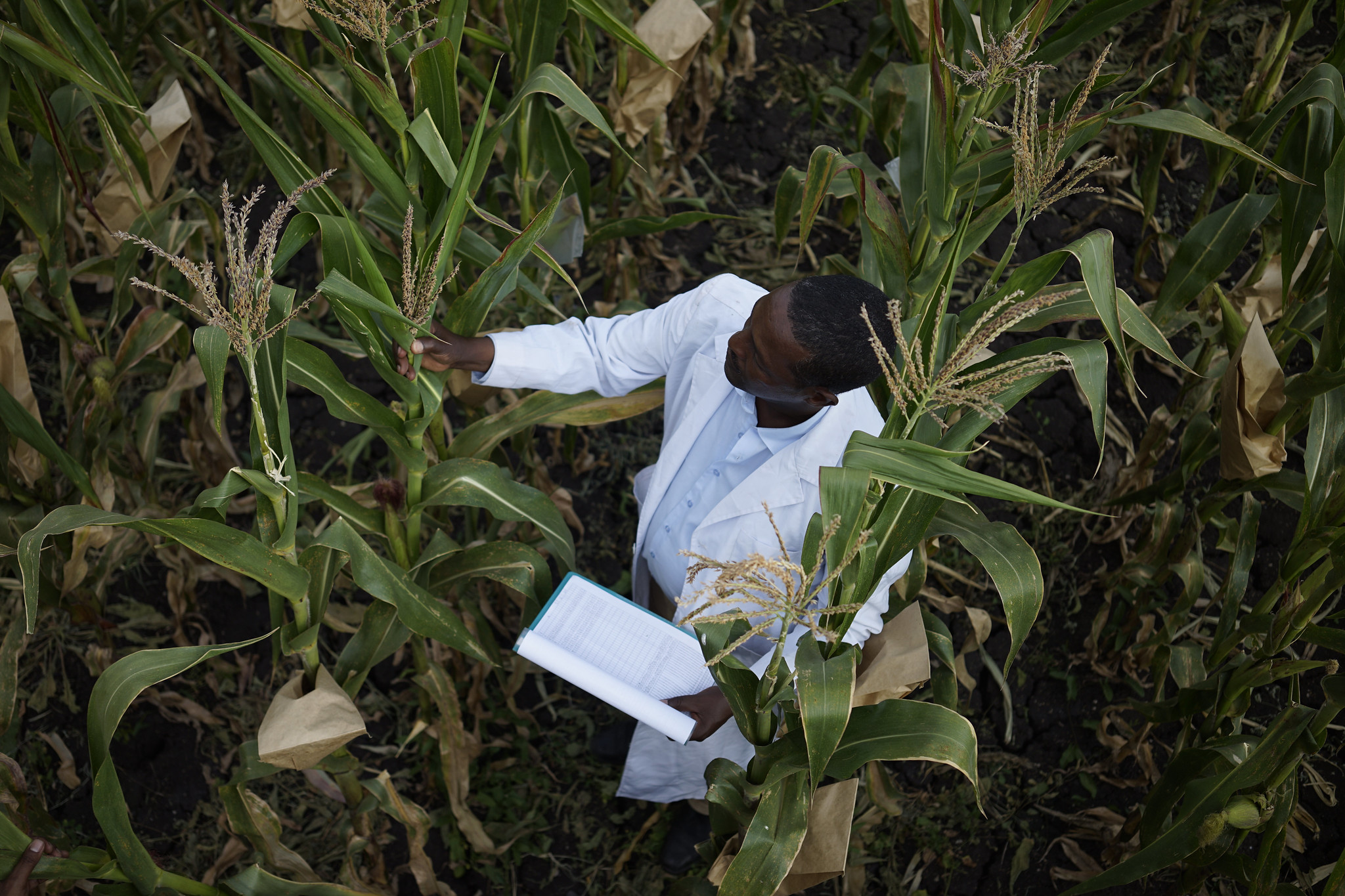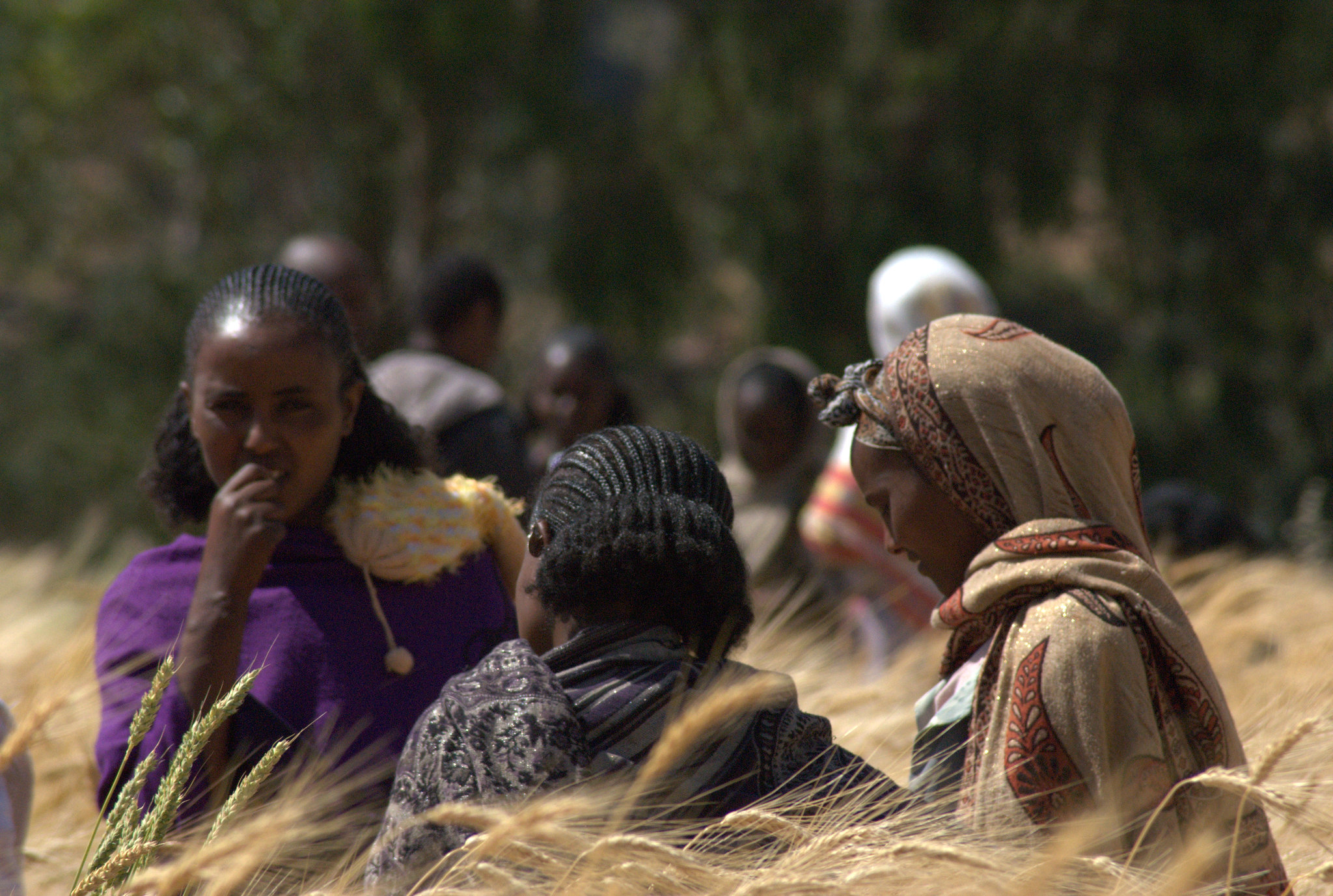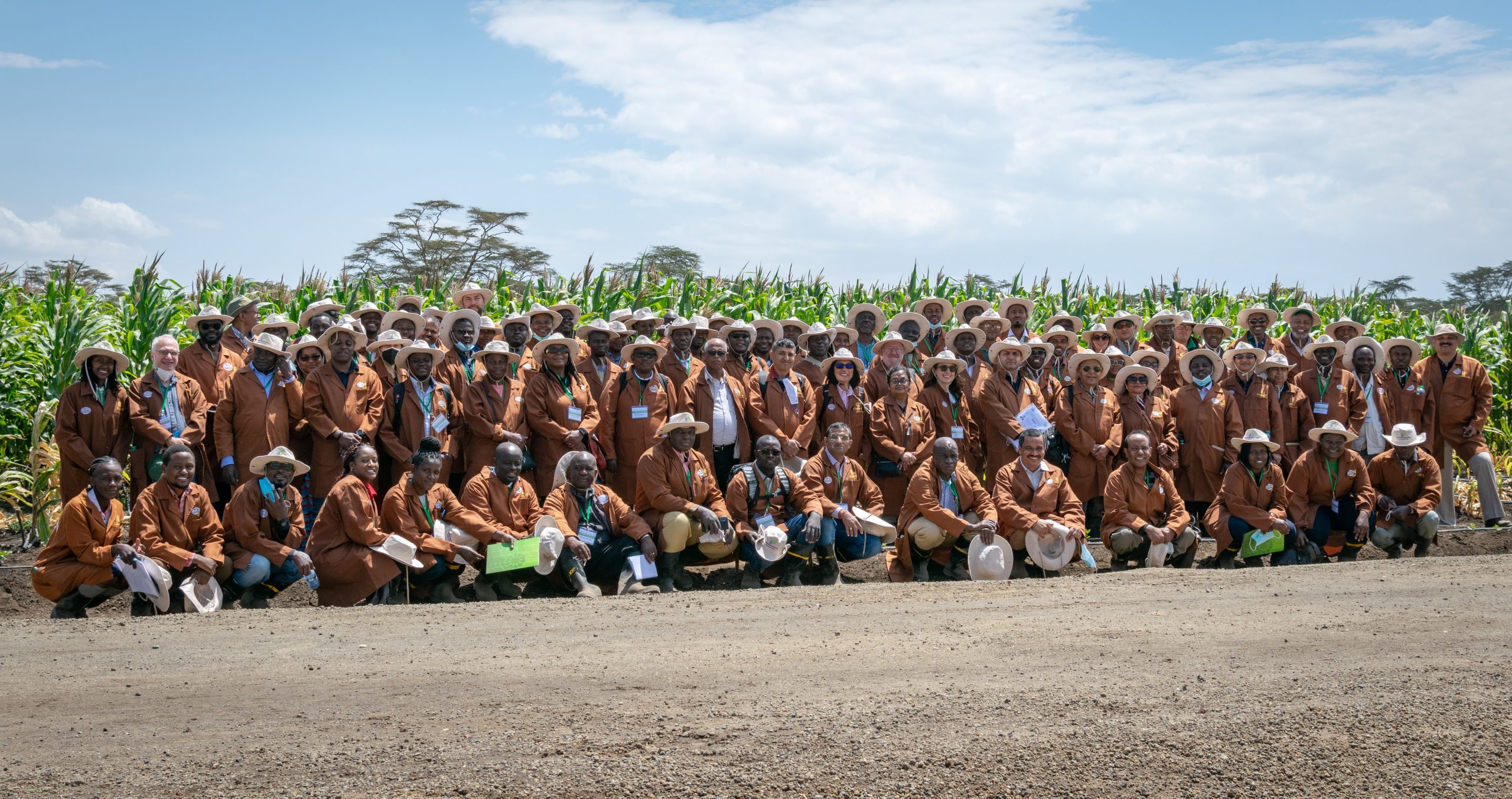
The Accelerating Genetic Gains in Maize and Wheat (AGG) Project, which is halfway through its implementation, continues to register impressive achievements. At a meeting focusing on the project’s Maize component, held in Nairobi during July 25-28, B.M. Prasanna, Director of the Global Maize Program at the International Maize and Wheat Improvement Center (CIMMYT), highlighted the project’s major achievements in the opening session.
“One of the most important achievements of this project is increasing use of powerful tools and technologies to increase genetic gains in maize breeding pipelines in Africa,” said Prasanna. He noted that the AGG partners are showing keen interest in doubled haploid-based maize breeding. Prasanna pointed out that currently work is ongoing to produce third-generation tropicalized haploid inducers which, in combination with molecular markers, will support accelerated development of improved maize germplasm, a key objective of the AGG Project.
Prasanna also pointed out a significant increase in adoption of stress-tolerant maize in Africa – from less than half a million hectares cultivated under stress tolerant maize varieties in 2010, to 7.2 million hectares currently in 13 African countries, benefitting 44.5 million people. He explained that drought-tolerant maize is not only a productivity enhancing tool but also an innovation for improving the welfare of farmers. “It reduces the probability of crop failure by 30 percent and provides an extra income to farmers at a rate of approximately $240 USD per hectare, equivalent to about nine months of food for a family at no additional cost,” he said, adding that the essence of research is taking improved genetics to farmers and impacting their lives.
He noted there is remarkable progress in maize varietal turnover in sub-Saharan Africa, pointing out particularly efforts in Ethiopia, Uganda, Zambia and Zimbabwe, where old maize varieties, some dating as far back as 1988, have been replaced with newer climate-resilient varieties. Prasanna highlighted the need to engage with policy makers to put in place appropriate legislation that can accelerate replacement of old or obsolete varieties with improved genetics.
Prasanna stressed on the importance of rapid response to transboundary diseases and insect-pests. CIMMYT has established fall armyworm (FAW) screening facility at Kiboko, Kenya, and that more than 10,000 maize germplasm entries have been screened over the last three years. He applauded South Sudan for being the first country in sub-Saharan Africa to recently release three CIMMYT-developed FAW-tolerant hybrids. He said CIMMYT’s FAW-tolerant inbred lines have been shared with 92 institutions, both public and private, in 34 countries globally since 2018.
Kevin Pixley, CIMMYT Global Genetic Resources Director and Deputy Director General, Breeding and Genetics, encouraged the participants to continuously reflect on making innovative contributions through the AGG project, to serve smallholder farmers and other stakeholders, and to offer sustainable solutions to the food crisis that plagues the world.
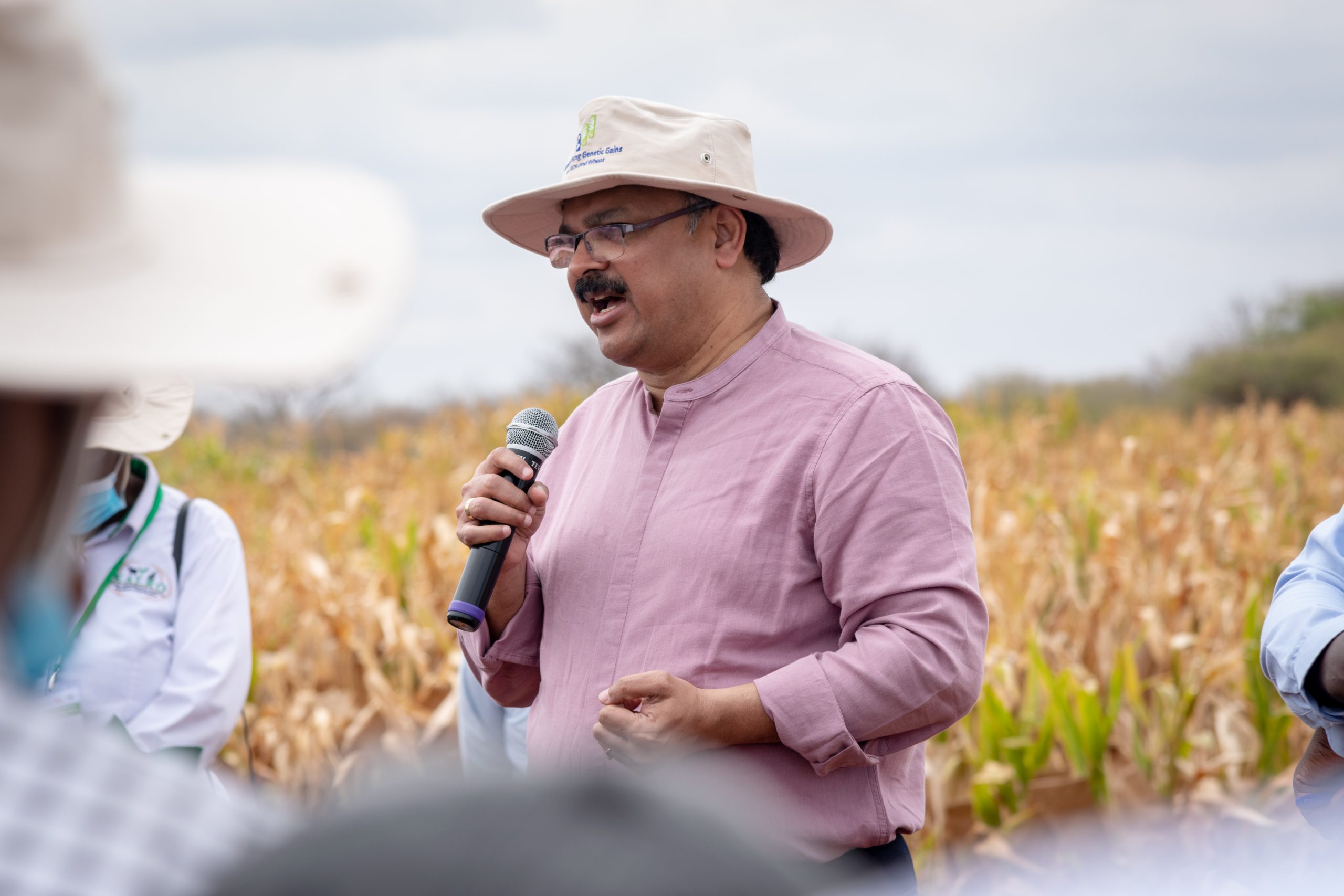
Synergies across crops and teams
Pixley pointed out that though the meeting’s focus was on maize, the AGG Project has both maize and wheat components, and the potential for learning between the maize and wheat teams would benefit many, especially with the innovative strides in research from both teams.
Pixley referenced a recent meeting in Ethiopia with colleagues from the International Institute of Tropical Agriculture (IITA), the International Center for Tropical Agriculture (CIAT) and CIMMYT, where discussions explored collaboration among CGIAR centers and other stakeholders in strengthening work on cowpea, chickpea, beans, sorghum, millet and groundnut crops. He noted that maize, wheat and the aforementioned crops are all critical in achieving the mission of CGIAR.
“CIMMYT has been requested, since August of last year, by CGIAR to initiate research projects on sorghum, millet and groundnut because these crops are critical to the success of achieving the mission of CGIAR,” said Pixley. “So, we have recently initiated work on the Accelerated Varietal Improvement and Seed Systems in Africa (AVISA) project together with partners. This is the first step towards OneCGIAR. It’s about synergies across crops and teams.”
Collaborative research commended
The meeting’s Chief Guest, Felister Makini, Deputy Director General – Crops of the Kenya Agricultural and Livestock Research Organisation (KALRO), commended the collaborative research undertaken by CIMMYT and other CGIAR partners. She noted that the partnerships continue to build on synergies that strengthen institutional financial, physical and human resources. She attested that collaboration between KALRO and CGIAR dates back to the 1980s, beginning with training in maize breeding, and then subsequent collaboration on developing climate-adaptive improved maize varieties and training of KALRO technicians in maize lethal necrosis (MLN) screening and management among other areas.
Maize and wheat are staple food sources in Kenya and sub-Saharan Africa and as the population increases, new methods and approaches must be found to accelerate development and deployment of improved maize and wheat varieties. She challenged the partners to intensify research and come out with high-yielding varieties that are resistant or tolerant to a wide range of biotic and abiotic stresses.
The Inaugural Session also featured remarks from the representatives of the AGG funders – Gary Atlin from the Bill & Melinda Gates Foundation, Jonna Davis from the Foundation for Food and Agriculture Research (FFAR), and John Derera from IITA, an AGG project partner.
A total of 116 participants, including representatives from National Agricultural Research Systems (NARS) in 13 AGG-Maize partner countries in Africa and seed companies, participated in the meeting. Participants also visited the KALRO-CIMMYT MLN Screening Facility at Naivasha, and KALRO-CIMMYT maize experiments at Kiboko, Kenya, including the work being done at the maize doubled haploid and FAW facilities.
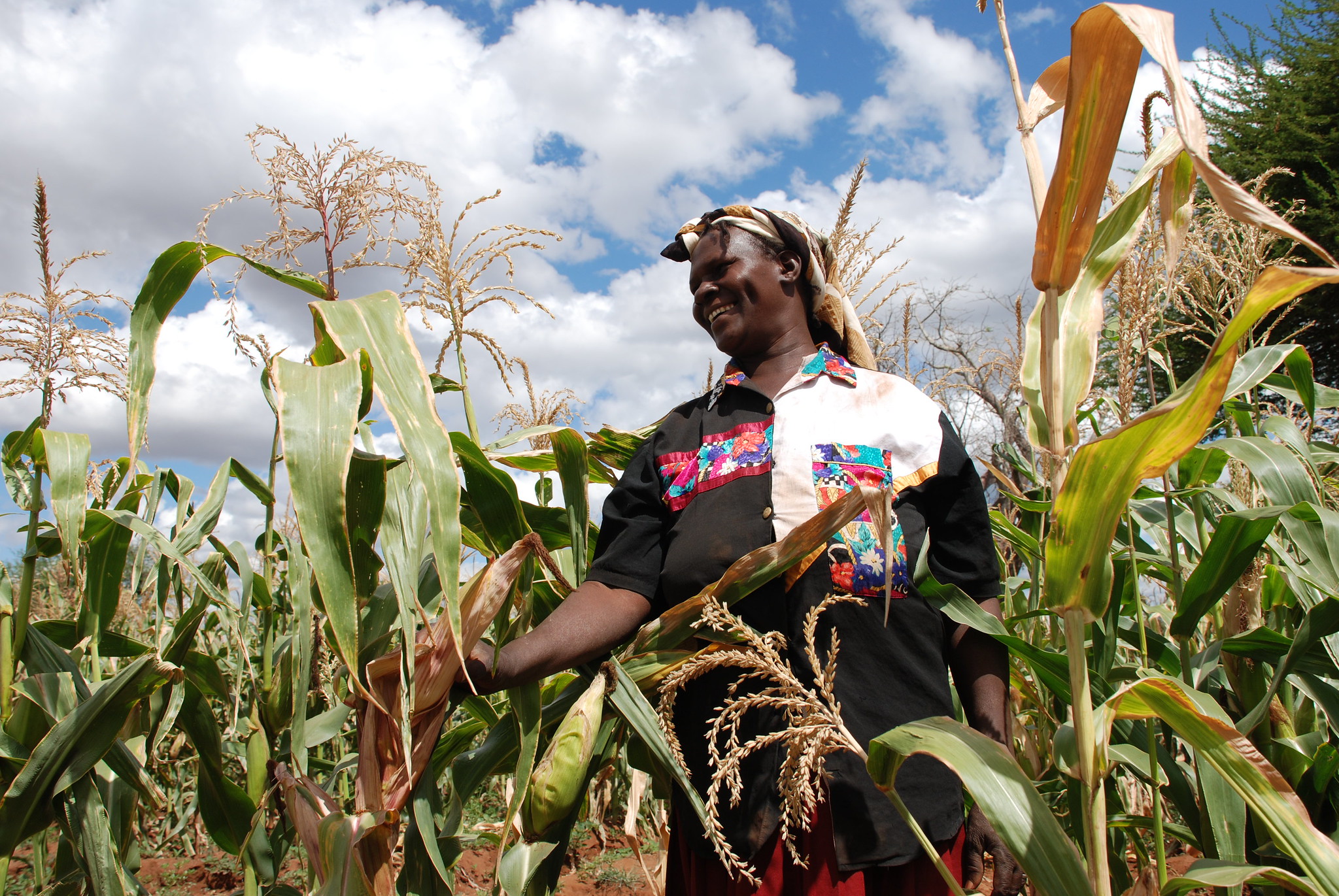
 Nutrition, health and food security
Nutrition, health and food security 